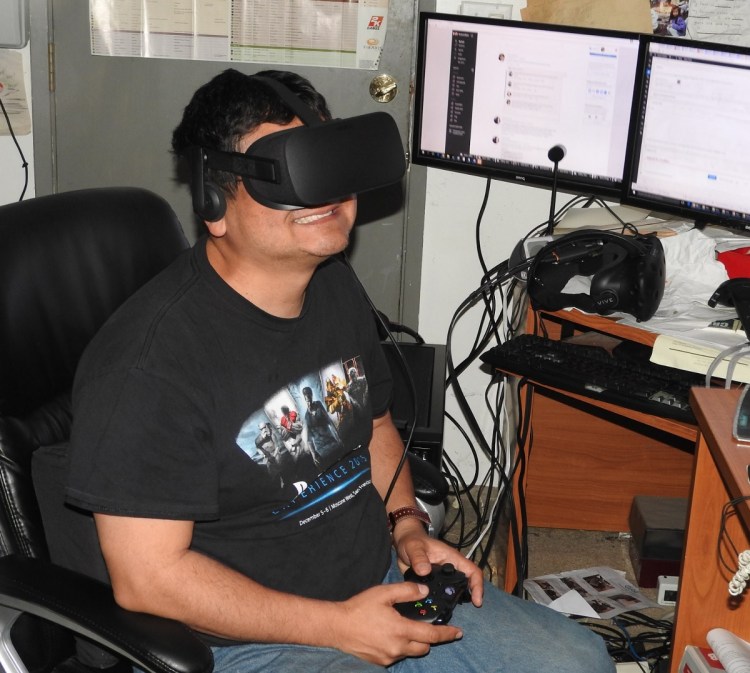Many customers are still waiting for Oculus VR to ship their preordered Rift headsets, and every day that those consumers don’t have their virtual reality device is a day they aren’t spending money on software. And that has forced one industry-tracking firm to revise its revenues expectations for a second time.
SuperData Research is cutting its forecast for virtual reality spending in 2016 by 22 percent, according to its latest market report. The intelligence company now expects the industry to generate $2.9 billion in revenue, which is down from a previous estimate of $3.6 billion. This is due in large part to Oculus VR’s and HTC’s inability to keep up with consumer demand, which has led to delays in delivery dates from April to May or even June for many people who preordered the Rift. But despite this rough start, SuperData is still confident the VR industry will reach $22.8 billion in annual spending by 2019.
This isn’t the first time SuperData has revised its 2016 expectations for VR. In March, prior to the launch of Rift and Vive, the firm dropped its estimates 30 percent from $5.1 billion to $3.6 billion. But while this year is looking like a rough start for VR, SuperData analyst Stephanie Llamas hasn’t wavered on her long-term predictions. This suggests that the problems of today’s early adopters won’t affect the VR consumers of 2017 and beyond.
“The general public is mostly unaware of virtual reality, with 50 percent of Americans showing no interest in or knowledge of VR,” said Llamas. “Broad consumer adoption relies on building awareness, but today nearly 80 percent of consumers only occasionally or never hear about VR.”
Only 28 percent of Americans have heard of Sony’s PlayStation VR add-on device for the PS4 console, according to SuperData. And that’s the most well-known headset in the industry despite its upcoming October launch date. Only 22 percent of Americans have heard of Oculus Rift. That’s compared to 21 percent for Samsung’s Gear VR phone-holding headset and 5 percent for the HTC Vive.
But that lack of awareness is both a hurdle and — potentially — a benefit for Oculus and the other VR manufacturers. Today’s early adopters of VR are 78 percent gamers. By 2020, SuperData expects that gamers will only make up 28 percent of the total audience. This means that today’s delays, bugs, and other troubles are getting smoothed out for an audience that is distinct from the mass market that should start adopting the technology in the next couple of years.
VentureBeat's mission is to be a digital town square for technical decision-makers to gain knowledge about transformative enterprise technology and transact. Learn More

